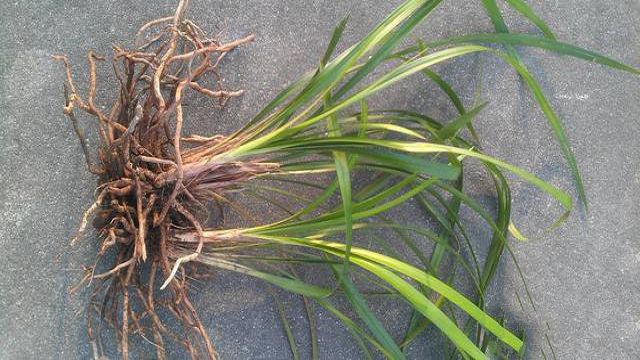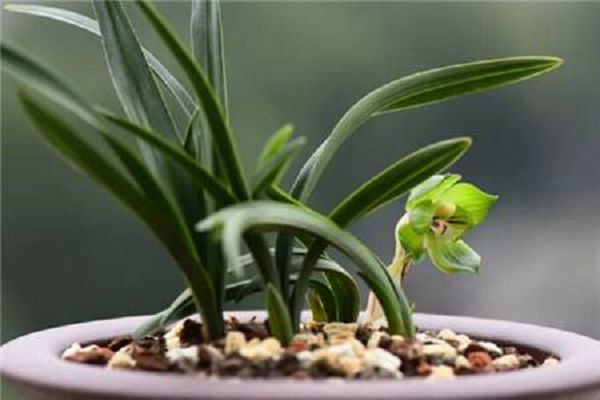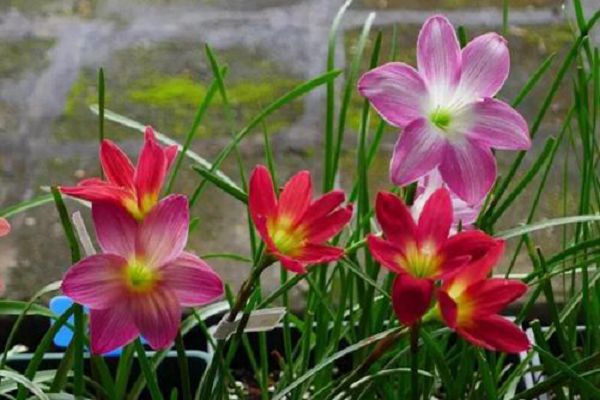Has the orchid now taken the pot when it was divided last autumn?

Spring is the peak season for the growth of orchids, and it is also the peak season for the growth of new seedlings. But not all orchids are suitable for fertilization in spring. Some orchids that have just been divided into pots or for a short time must be judged whether they have taken the pot or not before they can decide whether to apply fertilizer or not. So some flower friends' orchids were divided into pots last autumn, have they already taken pots now? Is it ready to fertilize?
Many flower lovers feel that it has been several months since the orchids were divided into pots last fall, and they must have taken the pots, and the suitable temperature in spring can be fertilized to promote growth and germination of new seedlings. But this is not the case, whether the orchid has taken the pot can not be determined according to the length of time, but should be determined according to the current state of the orchid. Because in the case of inappropriate temperature, even after several months, the orchid may still not take the pot, did not enter the state of growth, fertilizer will prolong the pot time, resulting in excessive plant loss and yellowing leaves, in serious cases, it will lead to the failure of the orchid basin and death of the whole pot.
Generally speaking, orchids in the north that are divided into pots at the end of August and September have almost been taken in pots before the advent of winter. When the temperature picks up in spring, they will grow normally, and they can also apply fertilizer normally. However, if the orchids in the north split into pots in mid-late October, even after a winter, they may not have taken the pot in spring. Do not rush to apply fertilizer in the beginning of spring, pay attention to observe whether the orchids grow normally, and then decide whether or not to apply fertilizer. Some orchids in the north split into pots at the end of autumn and the beginning of winter. they do not have long dormancy in winter, and no new roots grow out of the basin until the temperature gets warmer in spring. This process may last for a month or so, and early fertilization will only do more harm than good. In the south, because winter comes late, orchids that split into pots in October or even early November may serve as pots in winter and resume growth in spring. Therefore, whether orchids have taken pots after dividing pots has a lot to do with temperature and humidity. Flower friends in the south and north should pay attention to maintenance.
So how to tell whether the orchid has taken the pot? Mainly look at three points: first, whether the leaf color returns to normal, the color is thick green, the sense of gloss is strong. If there is no basin, the leaf color is dark and dumb, a little gray, no sense of gloss, not very upright, drooping a bit serious. The second point is whether the feel of the leaves is normal, whether they are more resilient and have a strong texture. If there is no basin, the leaves are a little soft and feel weak, which is the reason why the leaves are sagging seriously. The third point is whether the new leaves are growing and whether the Reed head is full. If there is no basin, the new leaves remain motionless, even if they have not grown in the past few months. In addition, when there is no basin, if the delay time is longer, the nutrients in the Reed head are consumed by the plant and can not be replenished, it will be soft wrinkled. If the Reed hair is yellow, it is mostly a sign of failure.
For orchids that have taken pots after dividing the pots, the temperature rises in spring and becomes stable, then appropriate fertilization can be applied. The fertilizer concentration of the first time should be a little lower, pay attention to observation after application, there is no problem that the second fertilization can be carried out normally. For orchids that have not taken the pot after dividing the pot, after the spring temperature rises, do not rush to fertilize, pay attention to observe the state of the orchid, when the leaves become oily and shiny, the new leaves begin to grow, it means that the basin is successful and can be fertilized and maintained. For orchids just divided into pots, it is suggested that a little nitrogen fertilizer should be applied first to promote the germination of new buds, and then compound fertilizer should be applied instead.
- Prev

Orchids have no roots how to grow roots, can you use sofa roots?
Orchids have no roots how to grow roots, can you use sofa roots?
- Next

The culture method of wind-rain orchid, so that the flowering period of wind-rain orchid can be as long as half a year.
The culture method of wind-rain orchid, so that the flowering period of wind-rain orchid can be as long as half a year.
Related
- Is the orchid suitable for indoor use? Is it good for the body?
- How to prevent the empty root of orchids?
- What to do after the crab claw orchid is withered?
- Why are the leaves of orchids always yellow? Fertilizing and watering.
- Can the root of the gentleman orchid be saved if it is rotten?
- Diagnosis and treatment of cotton-blowing beetle insects in Cymbidium
- There is a way for a gentleman's orchid to rot.
- What is the most suitable temperature and humidity for the orchid?
- How to raise a gentleman's orchid? Cultivation techniques of Cymbidium
- How to prepare the nutritive soil for the cultivation of Cymbidium

